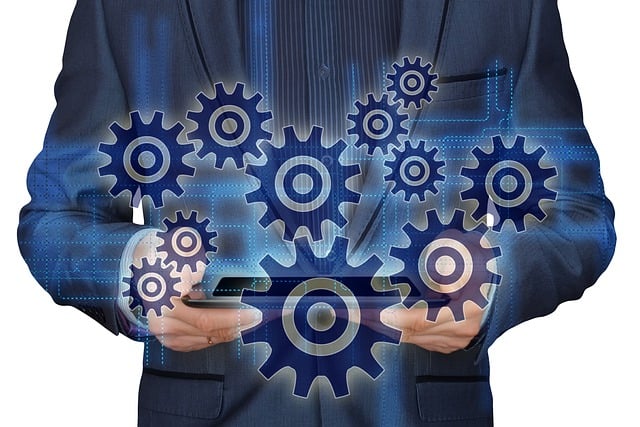Water conservation through smart irrigation systems using digital controls is a game-changing strategy addressing global population growth and climate change. Traditional methods waste water due to inefficient distribution, but modern smart systems offer precise, responsible water delivery through customizable programming, weather adjustments, and real-time monitoring. These innovations optimize water usage for agriculture and urban settings, minimizing waste and promoting sustainability. By leveraging technology like automated scheduling and precise delivery, users can maintain lush landscapes while reducing water consumption and bills, contributing to environmental conservation.
In today’s era of growing water scarcity, smart irrigation systems emerge as a game-changer in promoting sustainable water conservation. This article explores the importance of water conservation and delves into traditional irrigation practices that often lead to wastage. We highlight the transformative power of smart irrigation systems equipped with digital controls, offering precise water delivery and significant energy savings. By implementing these innovative solutions, communities can ensure efficient resource utilization while fostering environmental stewardship.
- Understanding Water Conservation and its Importance
- Traditional Irrigation Practices and their Shortcomings
- The Role of Smart Irrigation Systems with Digital Controls
- Implementing and Benefitting from Water-Efficient Solutions
Understanding Water Conservation and its Importance

Water conservation is a vital practice that ensures the sustainability of our precious water resources for future generations. With the increasing global population and climate change, effective water management has become more critical than ever. Smart irrigation systems play a pivotal role in this effort by offering advanced solutions to optimize water usage, especially in agricultural and urban settings.
The traditional irrigation methods often lead to excessive water wastage due to inefficient distribution and timing. However, modern smart systems incorporate digital controls that enable precise water delivery, ensuring every drop is utilized effectively. These controls allow for customizable programming, weather-based adjustments, and real-time monitoring, fostering a more responsible and eco-friendly approach to irrigation.
Traditional Irrigation Practices and their Shortcomings

Traditional irrigation practices, while effective in the past, are now facing significant challenges due to increasing water scarcity and environmental concerns. These methods often involve frequent and extensive watering, leading to excessive water usage and wastage. In many cases, water is applied uniformly across fields or landscapes, regardless of varying plant water needs or soil conditions. This results in over-irrigated areas, which not only wastes precious water resources but can also lead to soil erosion and waterlogging.
The shortcomings of conventional irrigation systems highlight the need for a more efficient and responsive approach. This is where smart irrigation systems step in, leveraging digital controls and advanced technologies to optimize water usage. By employing sensors to monitor soil moisture levels, weather conditions, and plant health, these systems deliver precisely the right amount of water, when and where it’s needed, ensuring optimal plant growth while minimizing wastage.
The Role of Smart Irrigation Systems with Digital Controls

Smart irrigation systems equipped with digital controls are transforming the way we conserve water in both residential and commercial settings. These advanced systems leverage technology to deliver precise amounts of water directly where it’s needed, eliminating waste from over-irrigation or under-watering. By integrating sensors that monitor weather conditions, soil moisture levels, and plant health, smart irrigation controllers can adjust watering schedules dynamically, ensuring plants receive optimal hydration without excessive water usage.
The digital controls in these systems offer significant advantages over traditional irrigation methods. They allow for remote monitoring and control via smartphone apps or web interfaces, enabling users to manage their watering schedules even when they’re away from home. This flexibility, combined with data-driven insights provided by advanced algorithms, helps homeowners and landscape managers make informed decisions about water usage, ultimately contributing to more sustainable and environmentally friendly practices.
Implementing and Benefitting from Water-Efficient Solutions

Implementing smart irrigation systems that utilize digital controls offers a profound shift in water management, transforming traditional watering practices into a more sustainable and efficient approach. These cutting-edge solutions are designed to meet the specific needs of plants and landscapes, ensuring optimal hydration while minimizing water wastage. By leveraging technology, homeowners and businesses can benefit from automated scheduling, precise delivery, and real-time monitoring, allowing them to maintain vibrant gardens and lush landscapes with significantly reduced water consumption.
The advantages are multifaceted: from saving on water bills to contributing to environmental conservation efforts. Digital controls enable adjustments based on weather conditions, soil moisture levels, and plant requirements, eliminating overwatering and its associated costs. This not only reduces the strain on local water resources but also fosters a more responsible and eco-conscious mindset among users. Embracing these water-efficient solutions is a step towards a sustainable future, where conservation meets cutting-edge technology.
